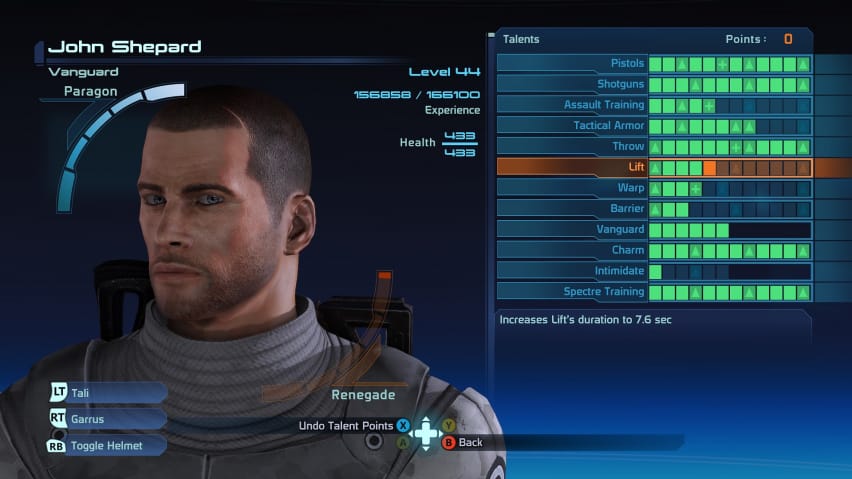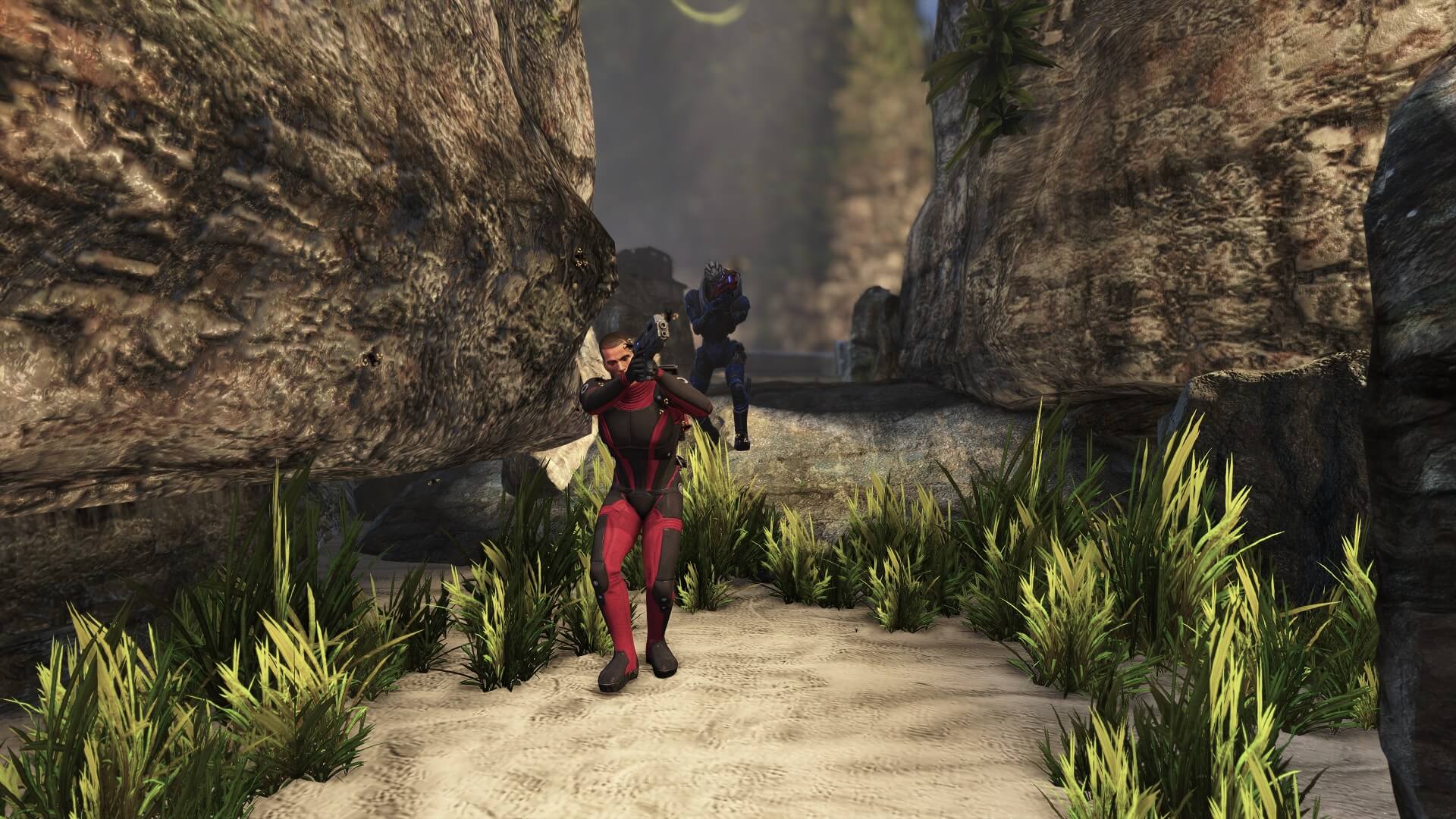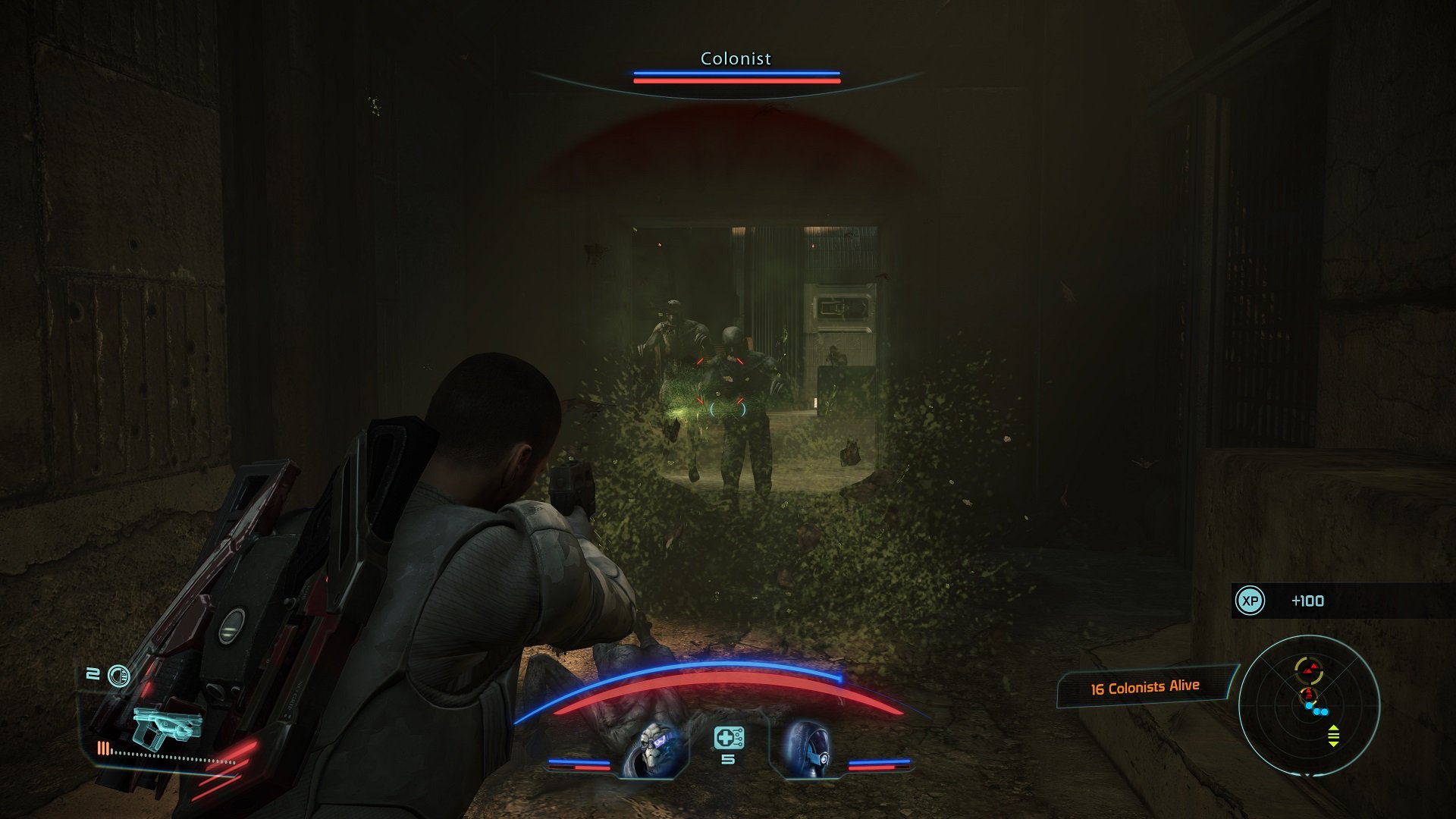Mass Effect Legendary Edition’s Only Notable Flaw

We knew from pre-launch developer blog posts and interviews that the first Mass Effect underwent several gameplay changes in the Legendary Edition ranging from gunplay to XP and morality balancing to tweaking the Mako’s handling. As a visual package, the original Mass Effect is a sight to behold at high resolutions and frame rates with these new assets, despite the occasional human model that doesn’t play nicely with the revamped lighting. The gameplay side of things are more complicated, however. The essence is still there—it’s still Mass Effect, but the alterations lose sight of what fans preferred from the original over its sequels. Legendary Edition’s tweaks lose some of the RPG magic.
Balancing Mass Effect’s Numbers

Mass Effect Legendary Edition includes two level scaling options: legendary and original scaling. Legendary scaling drops the level cap to 30, but provides double the skill points per level, meaning you won’t lose out on skill points. Original scaling uses the first game’s level 60 cap, but beyond that, the name is misleading. XP rollout has been increased across the board whether using legendary or original level scaling.
Mass Effect placed a hard level 50 cap on first playthroughs, with Legendary Edition removing this. Players are going to level up faster and may even reach level 60 in one run, making new game+ playthroughs pointless. These generous tweaks extend to the morality system, with any player able to reach max Paragon or Renegade status in one playthrough without much effort.
The increased leveling and morality rollout almost trivializes the conversation system. Players were forced to make more meaningful decisions in the original release regarding their build, spreading skill points across a range of combat, tech, and biotic abilities as well as charm or intimidate. Because you level up so quickly, you aren’t as pressured to make commitments, knowing the next few skill points are around the corner. In the original Mass Effect, whether players invested in conversation stats or other skills early on depended on their playstyle and what they wanted. This would lead to skill checks in conversations more combat-focused players would miss, which they’d want to experience on new game+.
Players that invested in charm or intimidate were also at a disadvantage because of the difficulty, rate of leveling, and weapon handling. Mass Effect made them choose carefully between conversations or combat with no right or wrong answer. Each had their advantages and disadvantages. Legendary Edition trivializes this to the point I recommend every single player invest in charm or intimidate immediately. Always max that stat out when available. This early-game investment was more nuanced in the original. I never would have told a new player to dump everything into conversations without learning more about the individual.
Balancing Mass Effect’s Gunplay

This recommendation isn’t made easier just because of how much more frequently levels are attained. Combat has been “enhanced” to the detriment of the role-playing experience. Mass Effect’s weapons were inaccurate with tons of bullet spread and kickback. Combat prowess increased as players dumped points into their weapons’ respective trees, increasing damage and accuracy with each node. Progression, one of the genre’s cornerstones, is diminished because of how effectively weapons handle now.
This isn’t to say Mass Effect’s combat was perfect within its genre trappings. Most notably, hit detection was a major issue. Headshots often didn’t register even when the projectile clearly made contact. These sorts of fixes along with a more reliable cover system, offer welcome refinements. Unfortunately, the vastly reduced bullet spread and laser-focused accuracy feel like backpedaling on the original’s vision. Mass Effect 2 and 3 are shooters first with RPG elements layered over top. Mass Effect was the opposite. RPG mechanics permeated every aspect of its design, from its weapon balancing and handling to its expansive skill trees, its leveling system, and its classes. This brings us to the removal of class-restricted weapons. Any class can use any weapon now. While they won’t get the benefits of weapon-specific skill trees, having every situation accounted for only reduces class diversity. They meld together more rather than the clear-cut delineations weapon gating offered.
In Defense of Mass Effect Legendary Edition
RPGs, at their core, are about making difficult decisions. Whether it’s in conversations, combat, equipment, or skill-point allocation, committing to a path shouldn’t feel easy. The genre is at its best when it encroaches upon choice paralysis because that signals a game with several equally viable and exciting options. Mass Effect Legendary Edition strips away much of this decision making. Its combat is so refined and its allocation of experience and morality points so abundant that I never once felt like I was making a trade-off. One could make the argument that the legendary scaling option could reduce this with its more infrequent leveling. However, given the max charm and intimidate nodes are unlocked in phases as players progress through the story and gain paragon or renegade levels, legendary scaling will still outpace the game’s conversation system.
I passed every skill check while steamrolling through combat encounters that gave me trouble even on repeat runs in the 2007 original. This isn’t to say Mass Effect has been ruined. It’s still got the characters and lore fans love from the franchise. There’s still an untouchable sense of personalization carrying imported saves across a trilogy. The climax is still exciting. It’s still Mass Effect. It’s just a Mass Effect that takes a few too many cues from its sequels.




